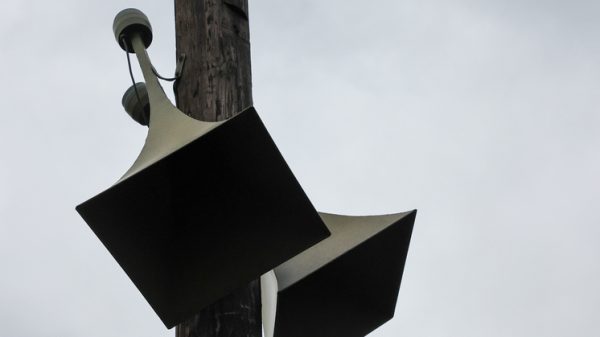When Captain Ayyappan Swaminathan set off from his home in Kumbakonam, southern India, in January 2017, to work on a ship in the Persian Gulf, he told his four-year-old daughter, Aniha: “Don’t worry, I’ll be back shortly.”
But the merchant seaman’s hope of returning home soon with good money for his family turned into a nightmare. His cargo ship, the MV Azraqmoiah, became a floating prison from which he and his 10-man crew could not escape without losing their claim to thousands of dollars in unpaid wages.
When Swaminathan’s eight-month contract to ship building materials between Iraq and the United Arab Emirates expired in October 2017, he and his mostly Indian crew were abandoned, thousands of miles from home, by the vessel’s owners, Elite Way Marine Services. They have been stranded, six nautical miles off Ajman port, with no supplies, no wages, no fuel and scant means of communication, for 18 months.
Forced to continue with their work onboard to keep the ship safe, they live on a meagre diet of rice and dahl provided by charities and the Indian consulate. In all, they are owed $260,600 (£199,300) in wages, they say, as well as their airfare home.
Even when Swaminathan manages to contact his family, via voice messages on WhatsApp when they can piggyback on another ship’s wifi, he cannot tell his little girl, who will be seven in June, when he will see her again.
“Aniha keeps asking me when I will come,” Swaminathan, 42, says via WhatsApp. “I always say: ‘Soon.’ But now she asks what date. Her school summer vacation begins on the third week of this month. She has lots of plans to spend time with me … I am really missing her. I need to go home.”
Back in India, Swaminathan’s absence is taking a heavy toll.
“[His wife] Menaka is really worried for his safety, his health. She just wants him home,” says Prabakaran, Swaminathan’s brother-in-law.
Meanwhile, the family’s debts are piling up. Menaka has been forced to sell their wedding gold and take out loans to pay rent. Swaminathan was paid $4,000 a month for his first seven months on board, but is still owed $74,000 for his contract on the ship. He is now taking legal action against the ship owner, assisted by Mission to Seafarers, a charity that supports stranded sailors.
Swaminathan’s case is far from unique. In the UAE, his is one of several abandoned ships owned by the same company, with 36 crew on board, all in the same desperate situation. Elite Way Marine Services says the company had “financial problems” but planned to pay the seafarers soon.
Worldwide, 4,866 seafarers on a total of 336 vessels have been recorded as abandoned on board ship, in records kept by the International Maritime Organisation (IMO) and the International Labour Organisation (ILO) since 2004.
There has been a dramatic rise in cases over the past two years. In 2018, 791 sailors on 44 ships were abandoned, while in 2017 a total of 55 instances were reported, according to the IMO/ILO database. In the previous five years, an average of just 12 to 17 ships a year were abandoned.
The IMO and human rights groups have compared abandonment to forced labour, or modern-day slavery.
“You have good and bad ship owners,” says David Hammond, founder of Human Rights at Sea, a charity lobbying for seafarers’ rights. “Every ship owner should have a separate fund to look after the crew, in case of financial difficulties. But unscrupulous owners know the limitations of the law and put profit before people.”
Abandoned seafarers have a right, known as a lien, to be paid their wages from the sale of the vessel, but lose those rights if they leave the ship, Hammond says.
Some ship owners may be using non-payment of wages as part of a conscious strategy. “There are definitely some calculated decisions being made not to pay seafarers,” said Jan Engel de Boer, senior legal officer at the IMO. “Although this is not true in all cases.”
Since 2017, seafarers who have been abandoned and unpaid for two months or more can contact their ships’ insurers, with a guarantee of four months’ wages, under an amendment to the Maritime Labour Convention. De Boer attributes the rise in cases partly to better reporting of the issue following this increased level of protection.
However, many countries, including the UAE, have not signed up to the Maritime Labour Convention. Of the 44 ships reported abandoned in 2018, 15 involved flag states that had not ratified the agreement, including Bahrain, the UAE, the Democratic Republic of the Congo, Dominica and Tanzania.
In many cases, even if the crew are successfully repatriated to their home countries, they do not receive their outstanding wages, according to De Boer.
“Half of the cases we are seeing remain unresolved,” he says. “So they remain on the ship. It can be very harsh. They can be at the mercy of charities or of the International Transport Federation. There are a lot of similarities with forced labour. There are very bad payouts and sometimes no payouts at all.”
By the end of 2018, 291 out of 791 abandoned sailors reported that year were repatriated and had their wages paid, 89 were repatriated with wages paid in part, and 411 cases remain “unresolved”, De Boer says.
The majority of abandonment cases last between five and eight months, according to the IMO. But, in some jurisdictions, lax laws allow unscrupulous ship owners to leave seafarers abandoned without pay, fuel and supplies, for longer. Seafarers rights groups are lobbying for the same human rights law governing land to apply at sea.
Asked to name the worst culprits for abandoning seafarers, De Boer offered two answers: “In terms of flagged ships, Panama, as it has a lot of ships. In terms of location, the UAE.”
The UAE, a busy maritime hub, has seen a rise in abandoned ships in its waters in the past two years, due to the downturn in the shipping industry, according to the Federal Transport Authority (FTA) in the country. The vessels concerned, it said, were mostly foreign flagged ships.
HE Hessa Al Malek, executive director of marine transport for the FTA in Abu Dhabi, says the authority recently took measures to ban irresponsible ship owners and their companies. “We put a limitation on ship age to ensure quality ships are calling on our waters, and we are working on new legislation giving us the legal power to auction ships abandoned by the owners.”
The FTA has now taken legal action against Elite Way Marine Services, to arrest Swaminathan’s vessel, which is UAE-flagged. It has already arrested one of the company’s other vessels in the Gulf. Once the ship has been arrested, the seafarers can be repatriated by the Indian consulate, which has promised to do so.
Facing legal action, Elite Way has now promised to sell two ships, a tug and a supply vessel, to pay the wages it owes the seafarers.
When asked by the Guardian why Swaminathan and the other crew have been left abandoned at sea for 18 months, Captain Ibrahim Gafar, Elite Way’s operations manager, would only say his company ran into financial difficulties. He says he has so far refused to sell any of his vessels to release money to pay their wages because he would not get a good price, but now has a buyer for one while another is being sold for scrap. He will pay the seafarers after he gets the cash from the sales, which he expects to happen by the end of next week.
Gafar says: “We have a financial problem. For one and a half years the market has been down. Any person would not give a good price for the vessel.”
One marooned ship exposes the Brexiteers’ phoney claims | Polly Toynbee
Read more
Rev Andy Bowerman, the Middle East and south-east Asia director of Mission to Seafarers, paid a visit to the MV Azrakmoiah two weeks ago, with fresh supplies and to top up phone cards. It has also provided some money for notaries so that Swaminathan can take legal action.
“They had no water and were having to filter seawater,” says Bowerman, who lobbies the FTA and Swaminathan’s legal team every day. “It’s a pretty grim situation. Swaminathan is a very experienced captain. He is very positive and plays a fatherly role to the younger members of the crew, four of whom are novices. They are terrified to be in this situation. They all have families who depend on them.”
Swaminathan says he is hopeful his case will be resolved soon. “In 21 years of being at sea, I have never experienced such bad management. The owner must pay for harassing us and pay our wages. I will keep my mind strong and seek justice.”























































Свежие комментарии